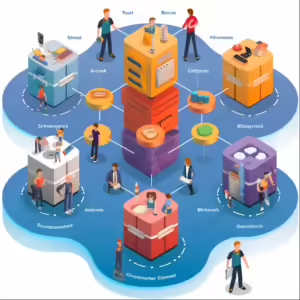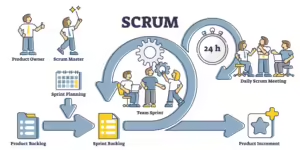CRM Software: An essential tool for customer management and retention
Customer Relationship Management (CRM) software is a central component in modern business operations. It enables companies to effectively manage, analyze and improve their customer relationships. This article explains the role of CRM software, its functionalities, benefits, challenges and implementation strategies.
What is CRM software?
CRM software is a tool that helps companies manage and analyze interactions with current and potential customers. It includes features to automate and integrate various aspects of customer management, including sales, marketing, customer service and support.
Core functions of CRM software
- Contact management: Central storage and management of customer information and interaction history.
- Sales automation: Management of sales processes, from lead capture to close.
- Marketing automation: Support in planning and executing marketing campaigns.
- Customer Service: Tools to improve customer service and handle customer requests.
- Analytics and Reporting: Advanced analytics tools to evaluate customer interactions and measure performance.
Advantages of CRM software
- Improved customer relationships: Deeper understanding and stronger engagement with customers.
- Increased efficiency: Automating routine activities saves time and resources.
- Targeted Marketing: Enables personalized and effective marketing strategies.
- Data-centric decision making: Data-driven insights into customer behavior and preferences.
- Increased Sales: More effective sales management leads to increased sales.
Challenges when implementing CRM software
- Integration: Integration into existing systems and processes can be challenging.
- User acceptance: Employees must be trained and motivated to use the system.
- Data quality: The quality and consistency of customer data are crucial to the effectiveness of the system.
Strategies for a successful CRM implementation
- Clear Goals: Defining clear goals and expectations for the CRM system.
- User Training: Comprehensive training and support for end users.
- Phased rollout: Gradual introduction of the system to minimize disruptions.
- Feedback and Adjustment: Continuously evaluate and adjust the system based on user feedback.
Conclusion
CRM software is an essential tool for any business that wants to strengthen customer relationships and increase sales. By effectively managing and analyzing customer interactions, it enables companies to better respond to customer needs and build long-term relationships. Although implementing a CRM system presents challenges, the potential benefits in terms of customer retention, increased sales, and operational efficiency are significant.






